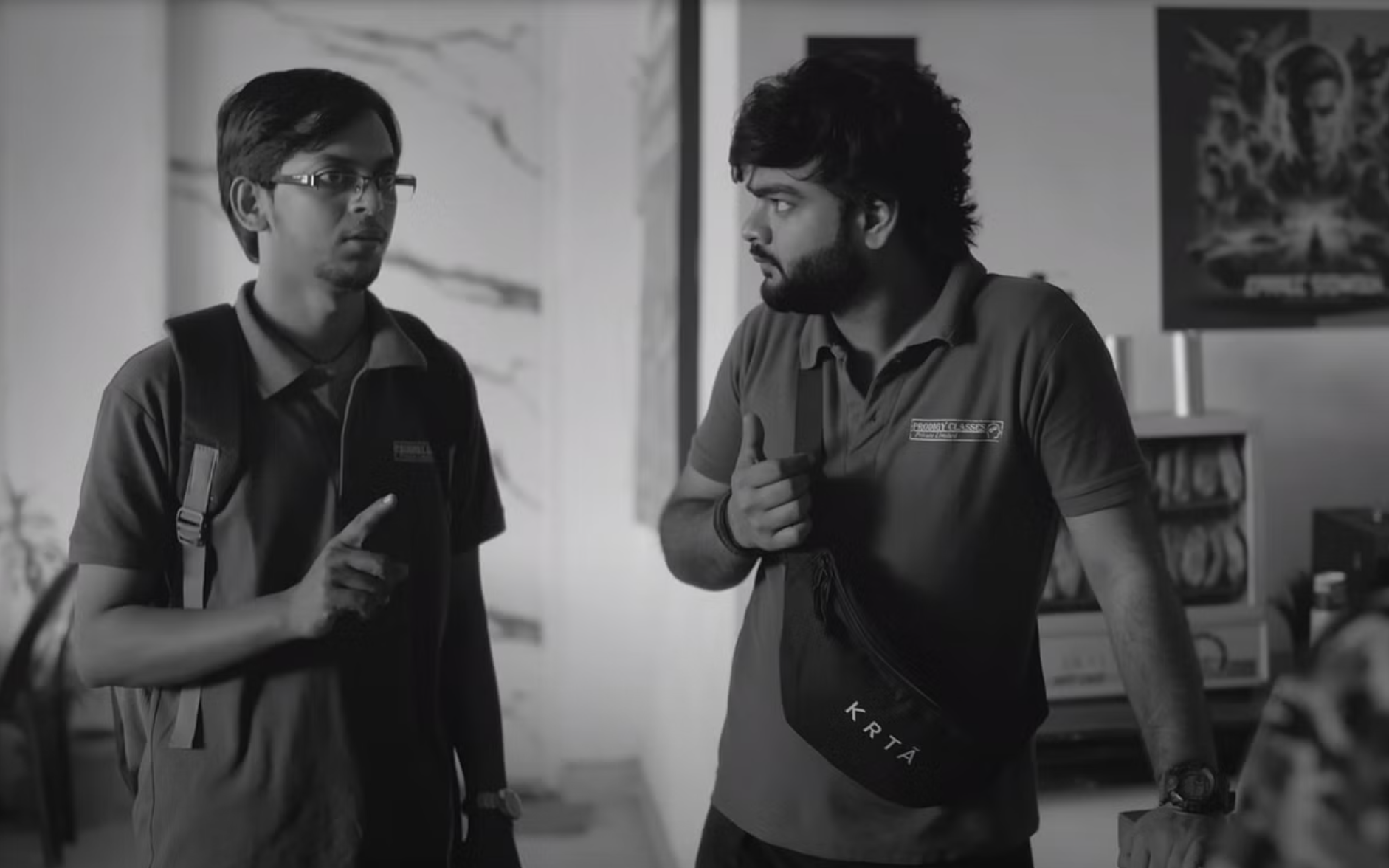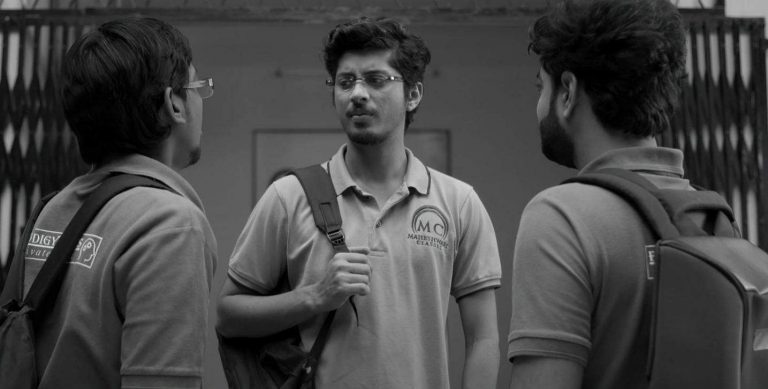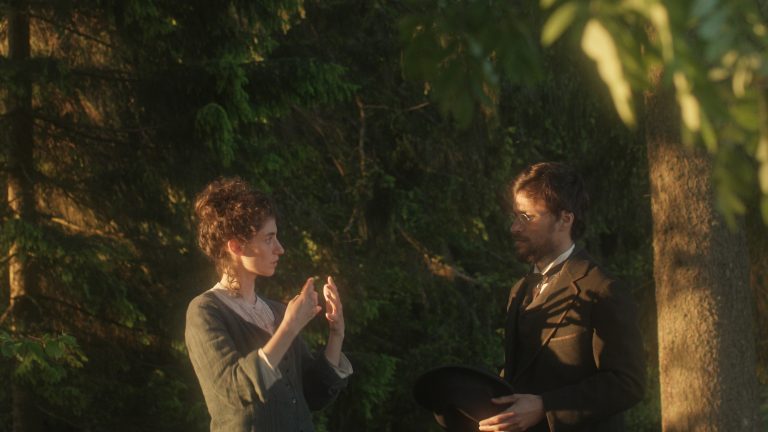Growing up has its own binary downside. You learn and unlearn things along the way, rediscovering ways to look at the world and the content you consume. In that regard, TVF’s “Kota Factory,” all the way back from 2019 when its first season dropped, has given most of us a keen acknowledgment of the many bittersweet lessons an average student goes through in their conditioning in a country like India.
While the first season provided a snapshot of the hugely dichotomous city of Kota—the mecca of engineering and medical aspirants in the country—its sophomore season provided a textured insight into the larger politics at play while detailing things that brew behind the walls of these giant academic institutions. It made viewers ruminate on how education and mental health cannot be two mutually exclusive facets of one’s life. Owing to the pandemic lockdowns, it found its own meaning despite a rather weaker outing.
The first two seasons, then, had cracked open the avenue for earnest storytelling by not merely echoing but also reflecting the everyday struggles of these students’ lives. The third and final season of the show externalizes this conflict, albeit by majorly redirecting it to their beloved tutor. What does it mean for the series at large, then?
We begin almost right where we had left off, with Vaibhav (Mayur More), Balmukund Meena (Ranjan Raj), and Uday Gupta (Alam Khan) now in their 12th grade navigating the final stages of the highly competitive IIT exams. The walls of the coaching ecosystem begin to fold upon them as personal crises overlap with their aspiring romantic counterparts in Vartika (Revathi Pillai), Shivangi (Ahsaas Channa), and Meenal (Urvi Singh).
While the unsettling pressure of desperately keeping up with the curriculum in a race against time continues to provide the show its narrative push, the thematic ideas get bogged down by the lens it focuses on. The looming clock ticking over ordinary students chasing extraordinary goals has constantly provided the show with the urgency required for a story like this. But the contemplative pace, along with the monochrome aesthetic, doesn’t quite enshroud the complicity the narrative tapestry this time around takes.

The centerfold of this tapestry finds Jeetu Bhaiya (Jitendra Kumar) caught up in a psychological trough following a tragic incident. One that makes him question the sensibilities through which he emerged as an angelic figure to his students. You commend the show for going into this dark, untethered territory – despite the trademark didacticism – because you want his personal journey to counteract the mechanical construct of the setting. A rather audacious decision that may have worked on paper, Jeetu Bhaiya’s eventual arc nevertheless deflects the show away from its premise of the students he so deftly shaped.
S3 comes with its share of awkward tumbles that, unlike the previous seasons, don’t offer much to say in the current national climate where distrust in central testing agencies and academic corruption has overtaken the discourse by storm. It eagerly chooses to reaffirm its default setting, almost like an extensive advertisement of a coaching institute silently submitting to the norms of the status quo. It resorts more heavily to its lecturing at a time when the contemporary discourse has had enough of it. You sense the narrative to ponder upon a resounding call for a punitive action in place until it finds itself in an abetting corner resembling the very streets and office spaces it depicts.
That’s also why Vaibhav’s trademark outburst this time around feels reductive when, in fact, it could’ve channeled its deep-seethed frustration to ignite a broader thematic arc. Perhaps showrunner Raghav Subbu along with writers Puneet Batra and Pravin Yadav, wanted to show how the mechanical rigidity of our education system eventually sucks everyone in (which, honestly, seems less likely considering the show’s pro-establishment lens). However, the need for the backdoor pedagogical decisions to provide conflict undermines what this story had always been about: a way of reconciling with the reality of the crucial teenage years that are often lost chasing big dreams – and worse – what it may cost when it’s a consequence of systemic shortcomings.
“Bolte hain na, if you’re the smartest in your class, you are in the wrong class.” By the end, Jeetu Bhaiya comes full circle in actually practicing what he preached. The show’s numerous such preachy monologues have continued to inspire countless fans it’s forged over the years. But growing up, all these years later, you begin to find the cracks in its belief; you expect the dark tonal shifts to live up to their promises while making you ponder upon the room for improvement this class deserves. You begin to notice the widening seepage over the system.
Observing the distress around, you expect the show to transcend its unvarying use of God’s eye view and the semblance of its monochrome aesthetic with its end. While the third season may at times have unknowingly normalized the very struggle it portrays, watching the finale inevitably leads to a cathartic sigh of temporary solace. By the time the credits roll, for all it’s worth, “Kota Factory” as a show manages to provide us with a precarious yet cordial journey throughout its course.






